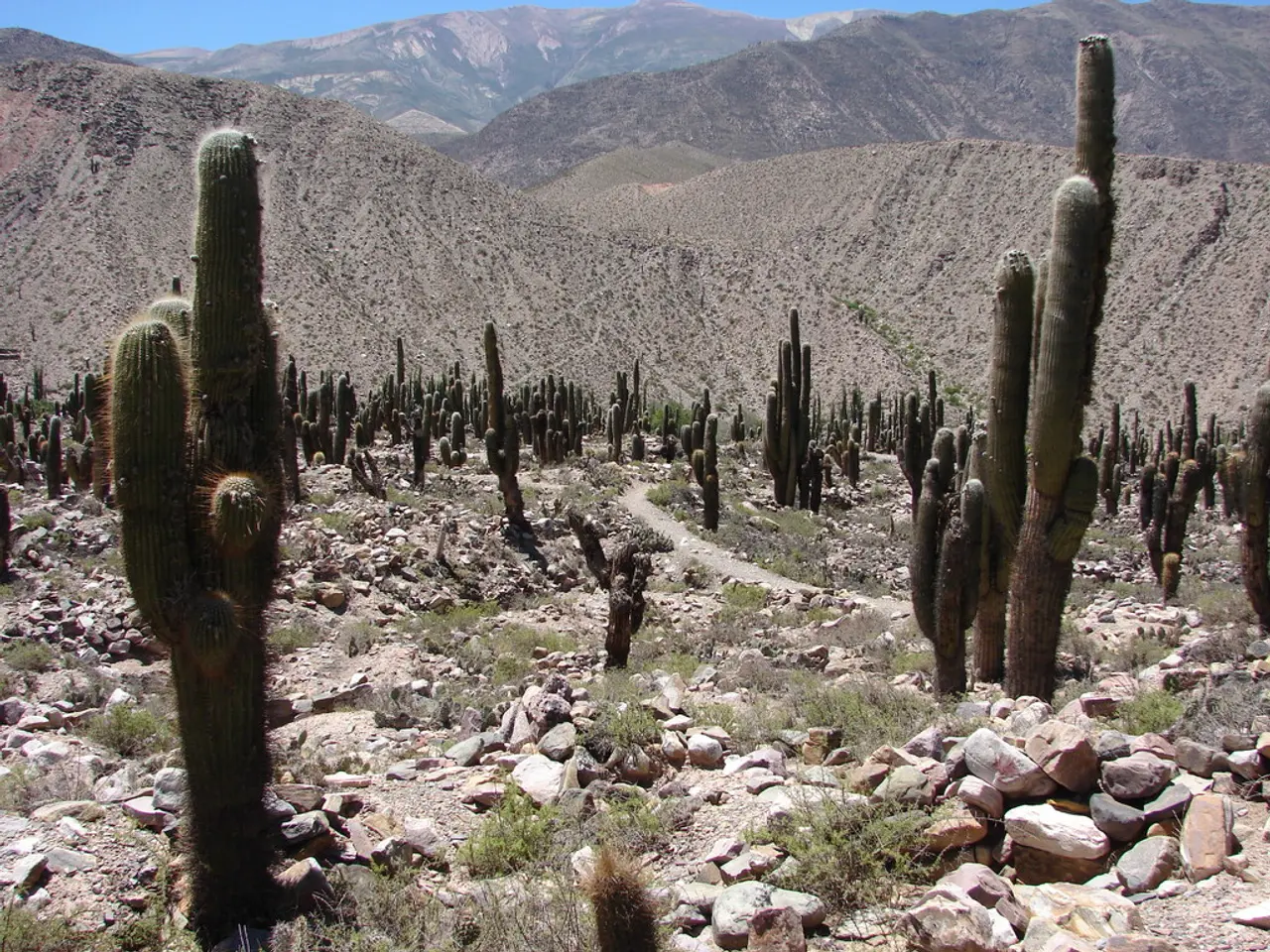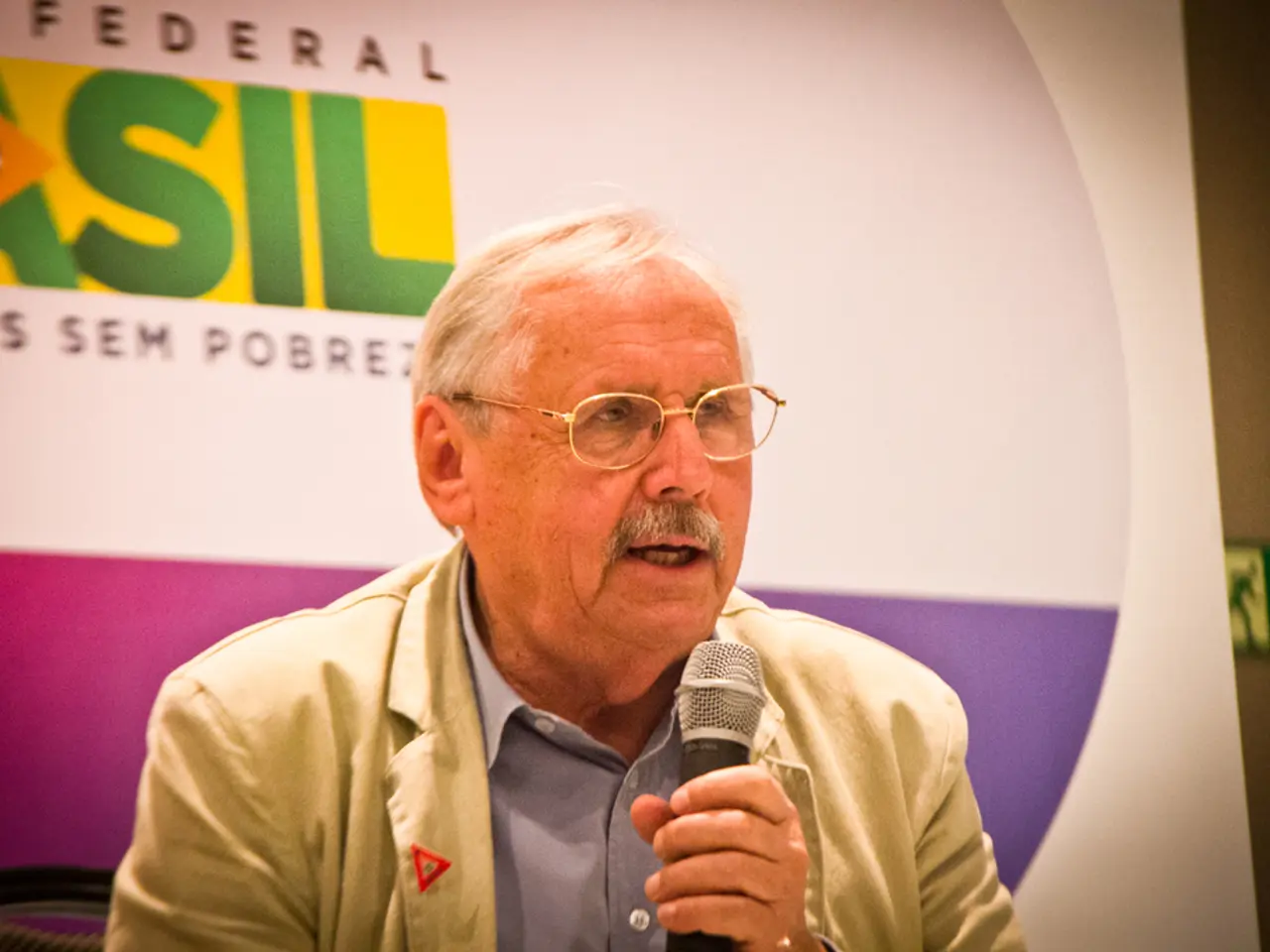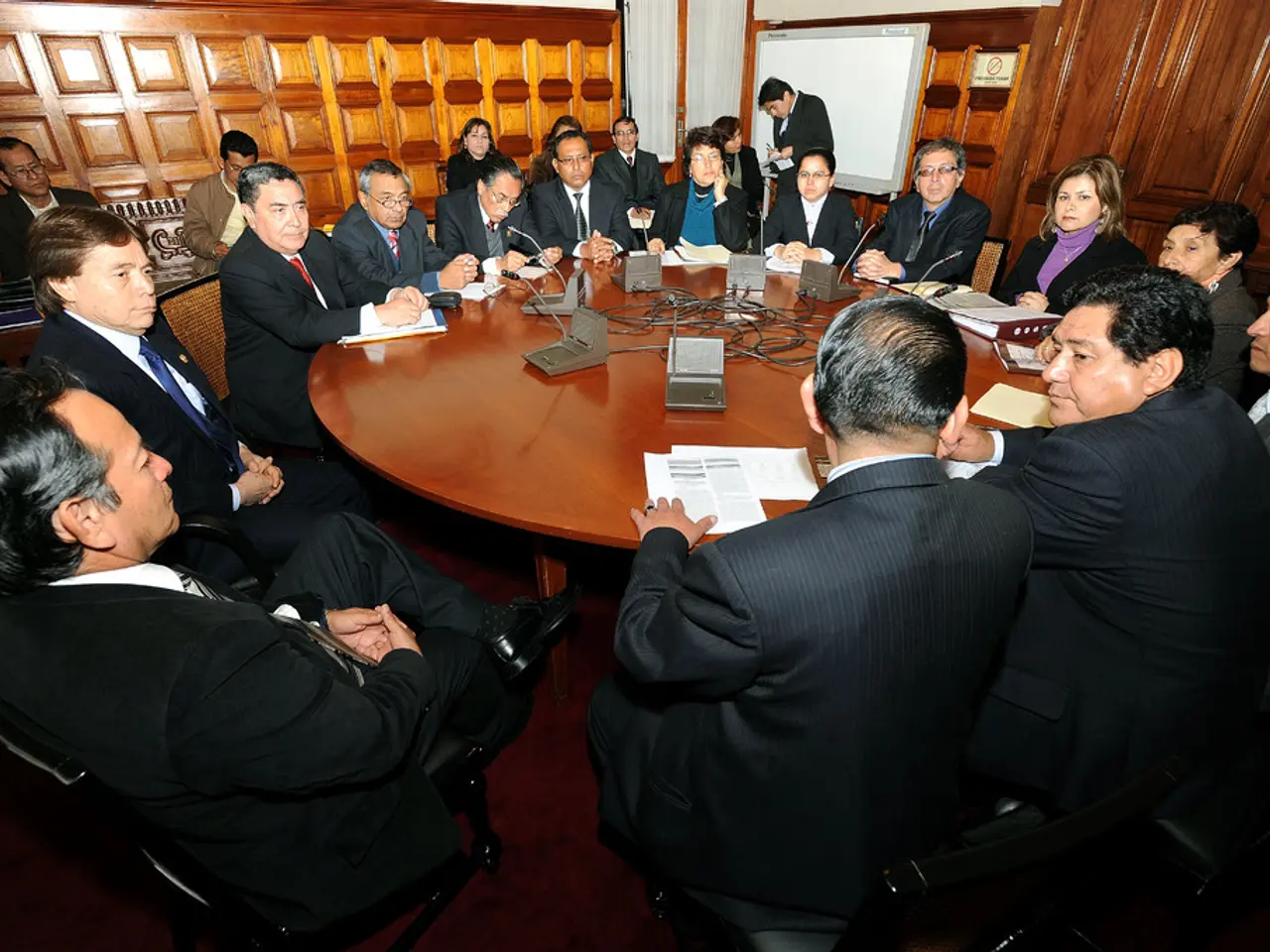Trump Government U-Turns Decision, Greenlights Chevron's Resumption of Activities in Venezuela
Venezuela's oil production has seen a significant boost in recent months, with enterprises producing between 200,000 and 250,000 barrels per day (bpd), accounting for a quarter of the country's total production. This development comes as Venezuela has maintained its crude production and export levels, with 90% of its cargoes directed to Chinese refineries last month [1].
The American oil giant, Chevron, has played a crucial role in this surge. Following the wind-down period of Chevron's activities, PDVSA, the Venezuelan state oil company, took over oilfield operations. In a recent development, Chevron negotiated changes to its contract with PDVSA, and under the new arrangement, the company would pay its Venezuelan partner in barrels of oil [2].
This move marks a significant shift in the U.S.'s policy towards Venezuela. The Trump administration, which had previously imposed strict sanctions on the oil industry, has now issued a specific license to Chevron, allowing the company to resume oil extraction and sales operations in Venezuela [3]. This license was later extended by the Biden administration with General License 41 (GL41) in November 2022 [4].
Chevron, operating in Venezuela for nearly a century, is currently the only major U.S. oil company with sanctioned permission to produce oil there. As a result of this license, Chevron has been able to maintain stable production around 240,000 bpd and is expected to help sustain Venezuela’s oil output at approximately 900,000 bpd, with potential to reach 1 million bpd by late 2026 [2].
This resumption of operations is part of a targeted easing of sanctions rather than a wholesale lifting. Oil exports between Venezuela and the U.S. remain subject to specific exemptions and controls as the broader sanctions regime against PDVSA and the Maduro regime continues [4][5]. Other foreign companies such as Maurel & Prom, Repsol, and ENI have seen their Venezuelan operating licenses revoked [4], reinforcing Chevron's unique status.
In a recent statement, Venezuelan President Nicolás Maduro acknowledged Chevron's renewed sanctions waiver and vowed that the country will continue its economic recovery. The renewed agreement could mean that PDVSA and Chevron will commercialize their respective production shares separately [6].
This policy shift comes amidst ongoing tensions among allies due to Trump's foreign policy towards Venezuela. Hardliners have advocated for harsher sanctions and regime change operations, while MAGA politicians and commentators have called for leveraging coercive measures to favor US corporate interests [1]. However, the U.S. has not specified whether it will allow European corporations to restart their operations in Venezuela.
The Trump administration's decision to grant Chevron a new sanctions waiver came in the wake of an agreement that saw Caracas release 10 detained US nationals and permanent residents in exchange for 252 Venezuelan migrants [3]. The US has also threatened to levy "secondary tariffs" on countries that receive Venezuelan energy exports, but the measure has not been enacted to date [5].
In conclusion, while U.S. sanctions on Venezuela's oil sector largely persist, Chevron operates under a renewed U.S. license permitting limited production and exports, signifying a strategic U.S. policy adjustment rather than full sanction relief [1][2][4].
References: [1] Reuters. (2023, March 1). U.S. sanctions on Venezuela's oil sector largely persist, but Chevron operates under a renewed U.S. license. Retrieved from https://www.reuters.com/business/energy/us-sanctions-venezuelas-oil-sector-largely-persist-chevron-operates-under-renewed-us-license-2023-03-01/
[2] The Wall Street Journal. (2023, February 28). Chevron's Oil Production in Venezuela to Help Sustain Output Amid Sanctions. Retrieved from https://www.wsj.com/articles/chevrons-oil-production-in-venezuela-to-help-sustain-output-amid-sanctions-11677506600
[3] Bloomberg. (2023, February 28). Chevron Wins Trump Administration Approval to Resume Oil Operations in Venezuela. Retrieved from https://www.bloomberg.com/news/articles/2023-02-28/chevron-wins-trump-administration-approval-to-resume-oil-operations-in-venezuela
[4] The Washington Post. (2023, November 22). Biden administration extends Chevron's license to operate in Venezuela. Retrieved from https://www.washingtonpost.com/business/2023/11/22/biden-administration-extends-chevrons-license-operate-venezuela/
[5] The Hill. (2023, April 1). Trump administration threatens tariffs on countries buying Venezuelan oil. Retrieved from https://thehill.com/policy/international/594758-trump-administration-threatens-tariffs-on-countries-buying-venezuelan-oil
[6] Associated Press. (2023, March 1). Venezuela's Maduro vows economic recovery after Chevron sanctions waiver. Retrieved from https://apnews.com/article/business-venezuela-oil-chevron-nicolas-maduro-economy-e606d266c3e3f751f9f41f6e7471b353
Chevron's renewed operations in Venezuela's oil industry are expected to help sustain the country's oil output, with potential to reach 1 million barrels per day by late 2026. The American oil giant's unique status as the only major U.S. company with sanctioned permission to produce oil in Venezuela enables it to maintain stable production and contribute to the country's economic recovery, as acknowledged by President Nicolás Maduro.







